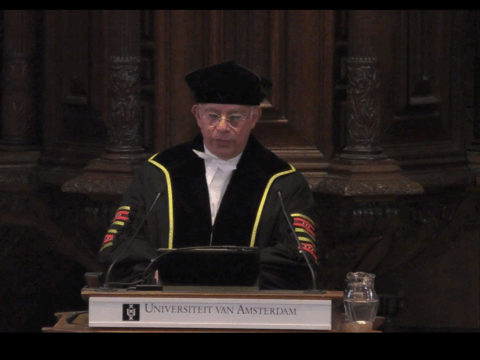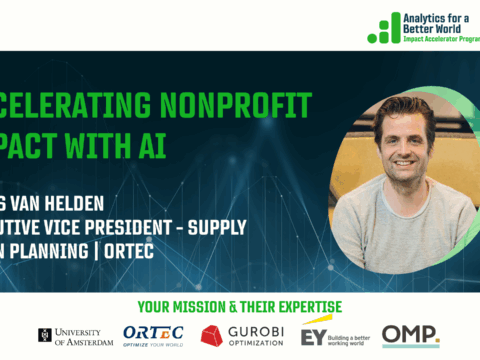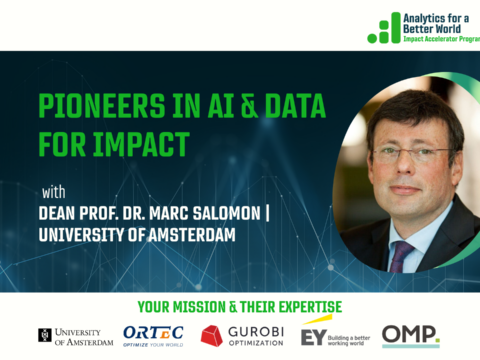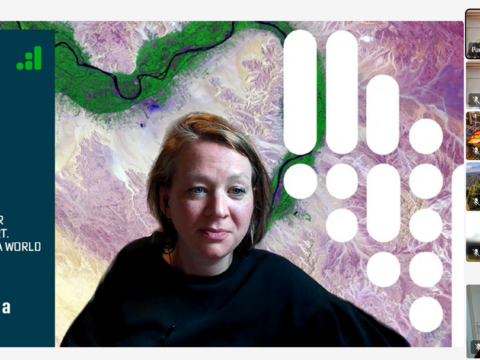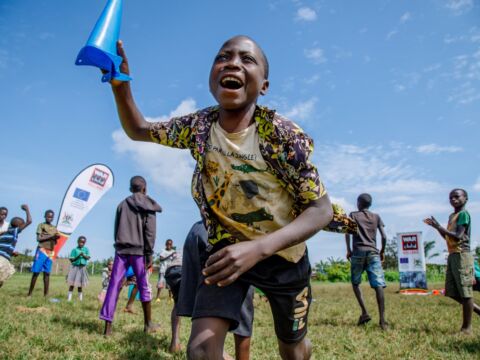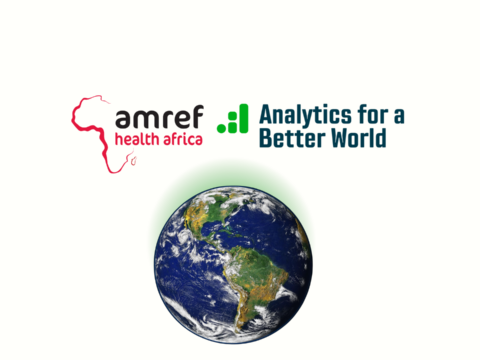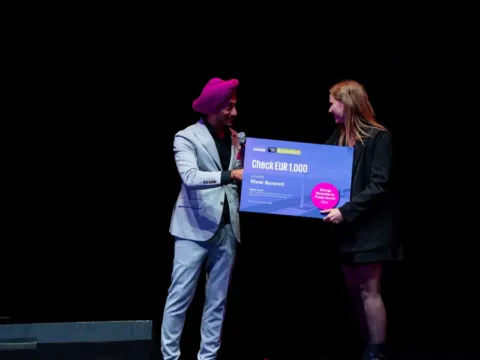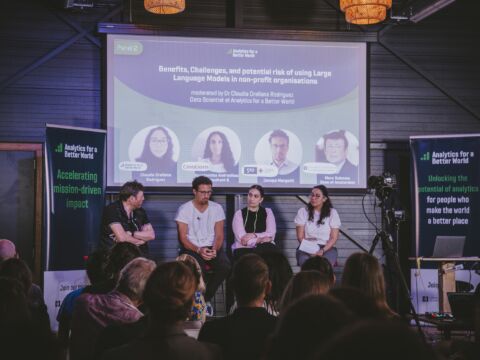Robert Monné
See profileAnalytics for a Better World
See profileTalking with our Managing Director: creating impact through a sustainable ecosystem and business model that works for all stakeholders
Interview with Robert Monné, managing director of Analytics for a Better World
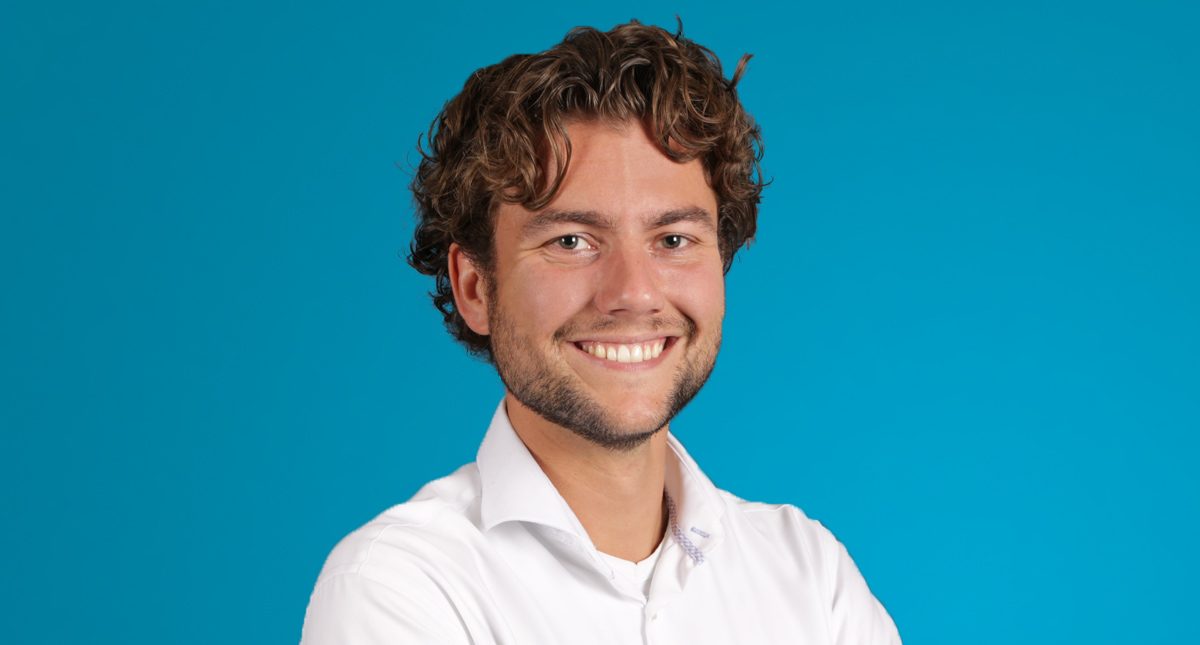
In 2021, two organizations found each other in their shared desire to contribute to a better world. ORTEC wanted to make a positive contribution to society to celebrate its 40th anniversary, while University of Amsterdam sought to flesh out Analytics for a Better World. Out of their combined knowledge and experience sprang an autonomous institute called Analytics for a Better World (ABW), founded by Amsterdam University, ORTEC and Dimitris Bertsimas of the Massachusetts Institute of Technology (MIT). Robert Monné, Director of ABW: “University of Amsterdam and ORTEC both made the commitment to grant the institute a serious startup budget for the next three years to help run the organization and launch projects. We’re a non-profit, so any profit we do manage to make is invested right back into the institute to help further our mission.”
“I have a profound love for this opportunity”, Robert Monné begins when asked about the launch of ABW. “I was drawn by the combination of doing something good for the world, flexing our entrepreneurial muscles and creating added value by applying optimization and machine learning. There’s still something magical about the latter, because they can help us make vastly improved decisions and detect patterns in data that we could never hope to discover on our own. Dick den Hertog had long been researching ABW. His accomplishments were praiseworthy as is, but he realized that he could achieve even more by involving more practically oriented private companies (closing the loop, ed.) and putting their shoulders to the wheel together.”
The interviews that make up this magazine have inspired Monné, he explains. “And they confirm that ABW’s mission and vision are right: the institute can play a major role in implementing analytics, providing and developing technical talent at NGOs, and helping these organizations to evolve. Just look at the articles on the Red Cross and Zero Hunger Lab in this magazine: that’s how much impact our work can have. By the way, our more practical edge does not mean that we can actually make a difference on the front line right away. We will be working closely with stakeholders such as NGOs, governments and the people in need, which clearly comes to the fore in the interviews.”
I believe that analytics can contribute to solving the major challenges facing humanity.
Where are there opportunities?
“I believe that analytics can contribute to solving the major challenges facing humanity: climate, hunger, deforestation, the extinction of flora and fauna, you name it. We’ve already seen the tremendous value that analytics can have for commercial organizations and the time is now ripe to harness their power to help solve these problems. However, we will expressly continue to work with NGOs to reach the right people, because their networks, their domain knowledge and their contacts with other stakeholders mean they are essential if we are to make a big impact.”
As far as partners are concerned, ABW deliberately sets the bar high, Monné says. “We’re mainly looking for large NGOs, public institutions and non-profits with a global focus that are eager to work with us to achieve the Sustainable Development Goals (SDGs) by applying analytics. They must have the drive to convince their own people of the merits of this direction, to uproot their processes and invest in technology. We’re looking for more than ‘just a little project’. We’re not averse to kicking things off at a smaller scale to create momentum, but we are primarily interested in long-term commitment. Pursuing long-term commitments is a logical consequence of the desire to build together, but is also necessary because it takes time and perseverance to make a serious impact with analytics. We also welcome companies with expertise in IT, UX/UI, application development, data science and AI, or large corporations that wish to provide support, either by contributing funds, manpower for projects, or technology licenses and capacity. Philanthropic and charitable funds are also welcome, of course, as are volunteers with data science skills, or with project management or marketing skills. Here’s a call to all companies, students, researchers and NGOs out there: if you want to join us on our quest for impact with Analytics for a Better World, get in touch and join us!”
Have any NGOs or companies expressed an interest yet?
“We’re now in talks with two technology suppliers about optimization software who are giving us licenses to help the institute accomplish its mission, and we’re also discussing projects with a major public organization. A big postal and parcel delivery company has agreed to commit people with logistics, IT and data science skills to the cause.”
Monné is quick to stress that the institute will not necessarily be implementing novel techniques or conduct experimental research: “On the contrary, using established techniques to achieve new results by applying them in a different environment inspires me. Image recognition is being applied with the satellite images available. You can train smart algorithms, recognize the areas hit hardest by an earthquake, or enhance weather models by combining them with historical data, which allows you to predict the consequences of a typhoon (see the interview with Maarten van der Veen about 510 and the Red Cross, ed.). These kinds of ideas arise in collaboration with people in the field, domain experts and technical specialists. I also find initiatives such as Justdiggit and Ocean Cleanup very inspiring. Justdiggit, launched by Dutchman Peter Westerveld, seeks to build a system of trenches and dams to collect rainwater in Kenya and stood out to me because of its apparent simplicity: you’re combating global warming just by digging holes. Ocean Cleanup, the organization started by Dutchman Boyan Slat, on the other hand, deploys innovative solutions to remove plastic from rivers and oceans and proves that you can achieve tremendous results by persevering and thinking big. When I was still writing my thesis, I was inspired by this initiative that involved equipping old smartphones with batteries and hanging them in trees to fight deforestation. The recordings made by these phones were then analyzed and every time you’d hear strange sounds or vibrations caused by illegal logging, you’d be able to take action immediately.”
What’s the first step for ABW?
“Finding partners and projects we can start working on together. Ideally, we’re looking for high-impact projects with NGOs, public bodies or non-profit institutions. That’s who we want to work with and help evolve into data-driven organizations. ORTEC knows all too well that it takes more than developing and implementing a software tool to win a battle: you also have to address people and processes. These are the challenges we’re looking out for. On top of that, we’re also going to conduct applied research, launch a journal and organize meetups and seminars for researchers, as well as encouraging people to apply analytics to high-impact use cases in a variety of ways. To this end, we’re also contemplating a Summer School to train NGO employees and give them the skills to lead the way in their organization. Finally, we’re also looking to create a repository for our open-source software and other deliverables. We’ll launch ABW at a conference to inspire each other, brainstorm together and define our ambitions (probably in April 2022, ed.).
We don’t want to restrict ourselves to a single SDG, and the problems we’re hoping to address are global.
Monné is happy to admit that the plans are ambitious, but the challenges ABW is hoping to address merit it: “We don’t want to restrict ourselves to a single SDG, and the problems we’re hoping to address are global. That’s why we’re aiming for a large community and want to create a broad network, which is also why the institute will have to be financially viable and sustainable. We want to create a business model that works for everyone involved, so that, in time, we will be able to support ourselves and won’t have to depend on grants and funding.”
“My interest in applying analytics for a better world began when I was studying business and information science and working on my thesis. I had plenty of time and space and I wanted to do something good for the world. The topic of my thesis was integrating information on river flooding in Bangladesh (in cooperation with Cordaid and TNO). After graduating, I applied to ORTEC to learn the ropes and start my career in analytics. They brought me in by offering me a CSR project (North Star Alliance), among other things. In 2016, I was given the chance to set up the Analytics Academy, which was an amazing experience that taught me a lot.
I then became practice lead Organizational Development and helped ORTEC’s clients ‘become more data-driven’ in the broadest sense of the word. Analytics for Good has always been an important part of my work. Several years ago, ORTEC was looking for a new CSR partner and landed on 510 (Red Cross), where I still knew people from when I was writing my thesis. We’ve now worked on various projects and training programs together, which motivated people at ORTEC and added value for the 510 team. We also developed and implemented a data and digital maturity assessment for the Dutch Red Cross, which is now being rolled out internationally.”
